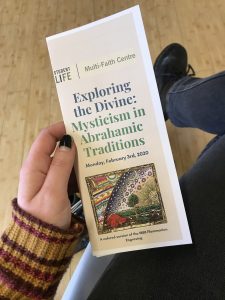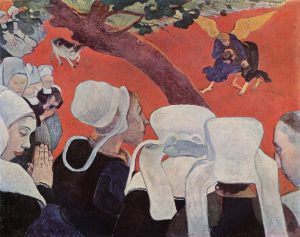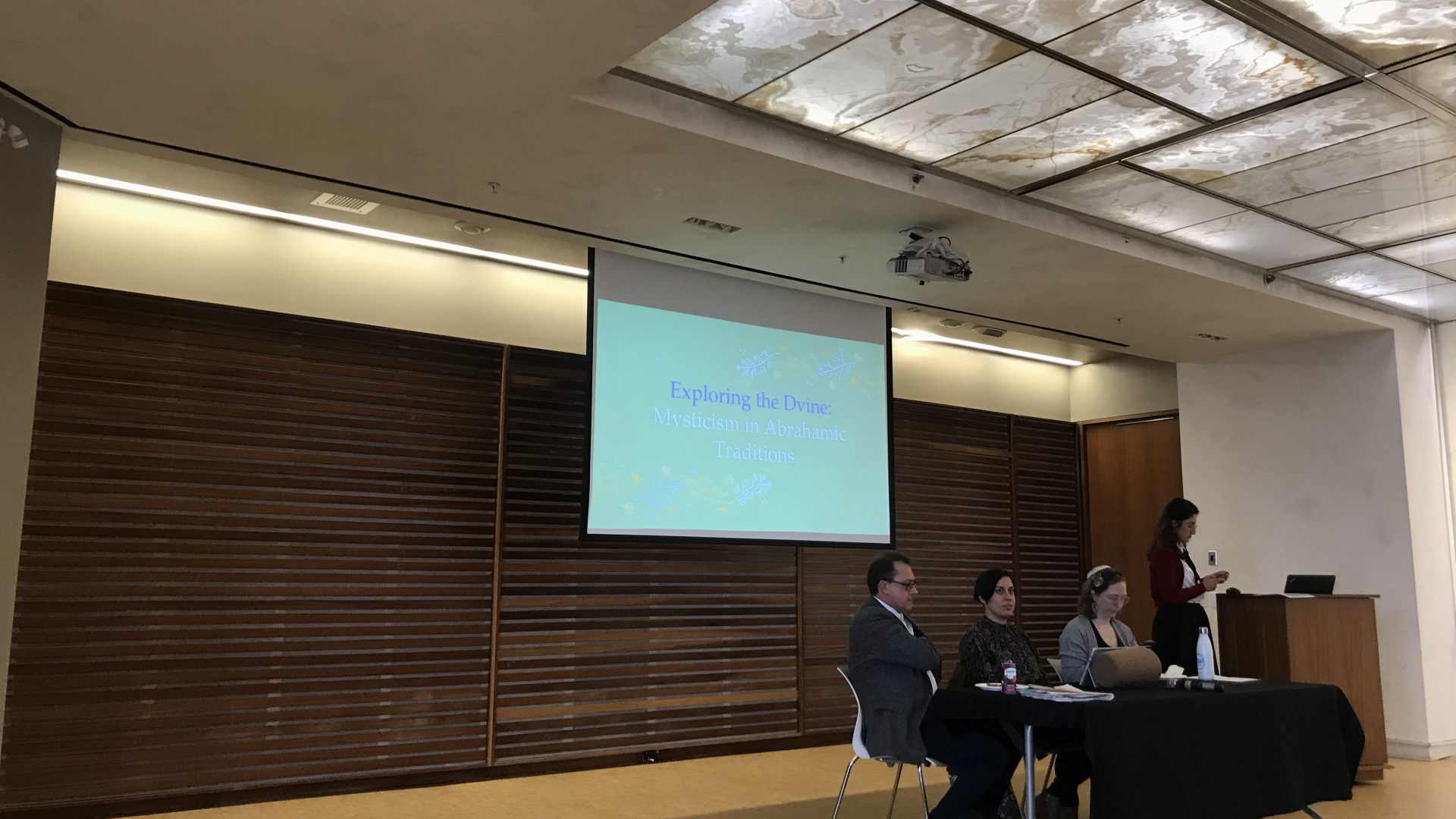Last Monday, I had the pleasure of attending an eye-opening and fascinating event. Organized by a fellow Multi-Faith intern, Yasamin Jameh, the panel discussion, “Exploring the Divine: Mysticism in Abrahamic Traditions,” hosted Rabbi Julia Appel, ProfessorMichael Stoeber, and Sara Abdel-Latif. Each panelist spoke of their personal experiences with Mysticism within their different traditions. I found many aspects of the talk enlightening, especially the ways they connected exploration of the divine to everyday life.
Rabbi Julia Appel is a Senior Jewish Educator at UofT’s Hillel centre. Her studies focus on Jewish mysticism and Chassidic theology. Rabbi Julia discussed how mysticism in Jewish tradition believes in upper and lower realms. Humans are in the lower realm and our existences are important, not only for our personal experiences, but also because they serve as a pathway to God. She articulated that there’s an essential brokenness in the lower realm, and so humans should strive to improve the world around us.

Dr. Stoeber, who is a UofT professor of spirituality and philosophy of religion, practices Christian Mysticism. He explained how he found Mysticism to be about transcending other religious dimensions, such as strict beliefs and rules, to find a deeper and more personal connection with God. He also discussed mysticism in Christian artwork, and mentioned one of my favourite paintings, Gauguin’s “Visions After the Sermon,” where Jacob wrestles an angel. Art is one form of mysticism that seeks to connect humans with the divine.

Sara Abdel-Latif practices Sufism-Islamic Mysticism, and is a Ph.D. Candidate at UofT, studying women and ascetic rituals in medieval Sufism. Sara illustrated the importance of shedding one’s own ego to unite with God, and how this forces one to look inward and confront their own character and soul. She also emphasized the significance of reducing material influence in human lives. The discussion’s prelude noted that today’s society often puts too much value on consumerism and financial success. This has caused a spiritual void, where our identities are fixated on professionalism and our public image.
I found this to be especially relevant in the age of social media, where it is common for people to feel a rupture between who they are and what they want to be. If we do not achieve the ridiculous goals we set, we often consider ourselves to be failures. However, these un-achievable standards and ideals rarely make us happy, even if we do succeed, because our triumphs never feel like enough. Mysticism is eye-opening specifically because you no longer chase the unrealistic external rewards. Instead, you’re forced to seek inward acceptance and spiritual peace.
In the Q&A session of the panel, an audience member asked about how mysticism can be related to social justice. Sara replied first by stating that mysticism believes that this world is God, therefore it is your duty to fulfill your service and help the world around you. Stoeber also mentioned that one of the dangers of Mysticism is ego over-inflation, where you can become disconnected from the world if you focus purely on the divine. Rather, those practicing Mysticism should work toward transcending the ego. If God is passion and justice, then those looking to connect with God should seek helping others. Lastly, Rabbi Julia wisely stated that you have to be grounded in this world to explore other worlds. She continued by arguing that this world is a gift from God and therefore, we should take care of it.
Whether this entails climate justice or social justice, it is our job to be stewards of the earth and guardians for each other. Ultimately, the perspective of Mysticism connected deeply with the disconnection I have personally felt between academic success and my own identity. Perhaps looking inwardly and focusing on my relationships with others, can help me connect more with the world, and the justice I want to see in it.

0 comments on “Exploring the Divine!”